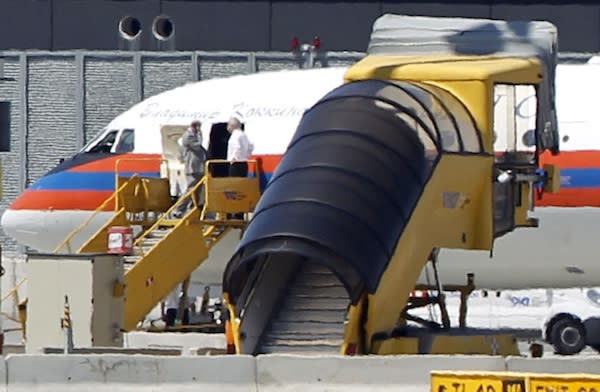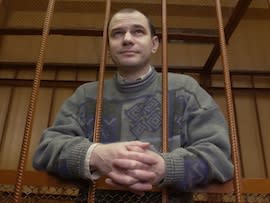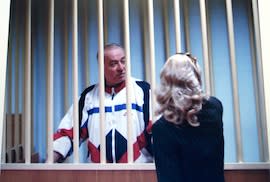 The Upshot
The UpshotWho are the Russians we traded the spies for?

The Russian spy ring that federal prosecutors broke up earlier this month has alighted back in Mother Russia, by way of an airport tarmac in Vienna. U.S. officials arranged to swap the 10 agents for four Russians who have done similar covert duty for Western intelligence services in the past — including a man who had been deemed one of the most effective Soviet spies of the Cold War. Who are they, and why are they so important to us?
Alexander Zaporozhsky
Zaporozhsky is a former KGB colonel who, the Russians believe, ratted out FBI official Robert Hanssen as a double agent working for the Russians. The Associated Press also reports that he is believed to have helped expose Aldrich Ames, the CIA official convicted of passing secrets to the Russians in 1994. Zaporozhsky first began working with the CIA in 1995 and illegally left Russia in 1998 to move to Maryland, according to the Historical Dictionary of International Intelligence. After arriving in the United States, he worked for what the Russians believed to be a CIA front company. In November 2001 — nine months after Hanssen's arrest — Russian agents somehow lured Zaporozhsky back to his homeland, where he was promptly arrested. In 2003, he was sentenced to 18 years in prison. If it's true that Zaporozhsky gave up Hanssen and Ames, then he's one of the most valuable intelligence assets the United States had during the Cold War.
Gennady Vasilenko
Zaporozhsky gave up Hanssen, and Hanssen gave up Vasilenko. Technically, Vasilenko, a retired KGB agent, was never convicted of espionage. But he made the mistake of becoming too friendly with a CIA agent named Jack Platt during a four-year posting to the Soviet Embassy in Washington in the 1970s and 1980s. Platt had targeted Vasilenko as a candidate for double-agent work, and though Vasilenko never provided any information, they became friends. In 1988, out of the blue, Russian agents arrested Vasilenko in Havana and brought him back to Moscow for questioning. He was detained for six months on suspicion of espionage, but later was freed without being charged. The reason for the sudden suspicion, Platt believes, was Hanssen: Shortly before Vasilenko's arrest, Platt had written a report about his attempts to recruit him. Around the same time, according to documents filed in the case against Hanssen, the FBI turncoat handed over a memo to his Russian handlers. Platt believes it was his report on Vasilenko. Improbably, Platt reconnected with Vasilenko after the fall of the Berlin Wall, and in 1993 the two men launched an international security firm called Securitar together. In 2006, at the age of 84, Vasilenko was convicted on a weapons charge and sentenced to three years in prison.
Igor Sutyagin
Sutyagin was a civilian military analyst at the Institute for U.S. and Canadian Studies, a highly regarded Russian think tank. In 2000, he was arrested on charges of providing naval intelligence secrets to the CIA, and in 2004 he was convicted and sentenced to 15 years in prison. Sutyagin had been providing freelance research summaries to a company called Alternative Futures, which the Russians claimed was a CIA front company. Sutyagin admitted to the freelance work, but said he had no idea Alternative Futures was a front (it "vanished" after his arrest, according to the New York Sun). Sutyagin maintained that he only provided the company with summaries of publicly available information — he had no access to classified data. Sutyagin maintained his innocence until the end. According to the New York Times, he was reluctant to participate in the swap, which required a confession, but decided it was his only way out.
Sergei Skripal
Skripal isn't even a U.S. agent — the former KGB colonel was convicted in 2006 of passing state secrets to Britain's MI6. According to prosecutors, British intelligence recruited him in the 1990s when he was serving in the Russian military. He later joined the KGB. Russian officials claimed that Skripal was paid $100,000 over the years for his secrets, which allegedly compromised the identities of "several dozen Russian agents working in Europe," according to Russian news reports.



